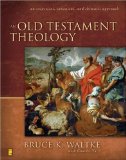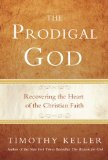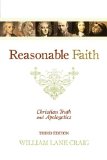Special thanks to Robert of Yale University Press for a review copy of this book.
 Joseph Fitzmyer has long been one of the most well known Roman Catholic Bible scholars, writing on subjects ranging from the Dead Sea Scrolls to a few highly regarded commentaries in the Anchor Series (Luke, Acts, Romans, and Philemon). Added to these commentaries is his latest work, a commentary on 1 Corinthians. I’m not sure how long he’s been writing books, but according to his Wikipedia page he was ordained in 1938!
Joseph Fitzmyer has long been one of the most well known Roman Catholic Bible scholars, writing on subjects ranging from the Dead Sea Scrolls to a few highly regarded commentaries in the Anchor Series (Luke, Acts, Romans, and Philemon). Added to these commentaries is his latest work, a commentary on 1 Corinthians. I’m not sure how long he’s been writing books, but according to his Wikipedia page he was ordained in 1938!
Fitzmyer’s strength is detailed exegesis- lexical analysis, grammatical discussions, historical concerns, etc. This doesn’t make for the most exciting commentary, but the fact remains that few scholars can write a genuinely engaging commentary. His attention to detail, especially of the Greek text, gives him some unique insight into some of the rhetorical devices used by Paul. As far as the content of 1 Corinthians, I’ll give a quick rundown of some of Fitzmyer’s insights:
On the divisions within the Corinthian church mentioned in chapters 1-4 (p52)- “Paul’s initial preaching of that gospel in Roman Corinth resulted in his making a considerable number of converts there. When other preachers came, such as Apollos and perhaps Cephas, the original Corinthian Christians heard the same gospel preached in other forms, which seems to have distracted them gradually from the nucleus of the gospel message. So Paul is concerned to recall them to that fundamental message of the cross and of the risen Christ, and of the role of his Spirit in their lives.”
The lawsuits of 6:1-11 are not referring to specific cases Paul has in mind (p248), though Fitzmyer does not really offer another view for why Paul has to write this section. Paul’s strong words against homosexual activities in 6:10 do not refer simply abuses in homosexual relationships, but any form of same sex relationships (p256-258). He also includes a short but helpful discussion of slavery and the Christian life in chapter 7, which isn’t surprising given his previous commentary on Philemon (p306).
Chapters 8-10 shows “that Paul seeks to persuade those who possess knowledge to adopt his policy of not using their very ‘right’ to consume such idol meat even in temple banquets” (p332). Regarding the passage about women covering their heads in chapter 11, Fitzmyer encourages the reader to keep in mind that Paul is only talking about the community gathering in worship, not addressing concerns about “the inferiority of women, women’s ministry, the role of women in the church, or even about the ordination of women” (p405-407). The head covering is a veil, not a woman’s hair. In his discussion about the Lord’s Supper Fitzmyer may make some Protestants uncomfortable with his use of the term “Real Presence.” He also includes a helpful discussion of the historical evidence for Jesus celebrating the Last Supper with his disciples and how Paul’s discussion in chapter 11 fits with that event (p430).
In chapters 12-14 “Paul is reacting against some Corinthian Christians who are vaunting one gift over another (especially speaking in tongues as the main gift of the Spirit), and in order to counteract that, he is seeking to put all pneumatika, ‘spiritual things,’ especially the endowments of the Spirit, in a proper perspective” (p454). As for specific questions some might have in these chapters: “‘prophecy’ has to be understood as a Spirit-inspired dynamic and effective preaching of the Scriptures and the gospel” (p467; on 12:10, also noting 14:1, 3-6, 24, 29, 31). Discerning of spirits (12:10) is not about interpreting prophecy, rather “is a term for evaluation” (p468). “The perfect” of 13:10 has nothing to do with the completion of the canon, but is eschatological (p498). Love is more important than the gifts “because it is the mark not only of eternity, but of the present as well” (p503). Fitzmyer differentiates between the prophet in 14:29 and the one receiving revelation in 14:30 (p526, despite the fact that Paul returns to prophets in vv31-32). The phrase “as in all the churches of the saints” in 14:33b belongs with what precedes it rather than what follows to avoid the repetition with “in the churches” in v34 (p527). The verses in 14:34-36 are not a later addition, despite the best attempts at some scholars to argue so. Rather (surprisingly), vv34-35 are a quotation of the Corinthian church and v36 is Paul’s objection (p530).
In chapter 15, Paul “seeks to demonstrate to them that belief in the resurrection of Christ, which he assumes they still hold, and the conduct of a life lived in Christian faith inevitably imply a belief in the resurrection of the dead” (p558). Paul is arguing against those who deny the bodily resurrection of believers (with Hays, Fee, and others) as opposed to him arguing against Corinthians who believed the resurrection had already happened (p559-560). So, “Paul is affirming not only the certainty of Christ’s resurrection, but also Christ’s resurrection as the guarantee of the futurity and certainty of the resurrection of the dead” (p568). ‘The analogies (of vv36-41) do not prove the resurrection of the dead, but they provide the first step of a plausible mode of understanding it, and they are drawn from ordinary everyday experience” (p586). The “‘spiritual body’ must mean a human body as transformed by God through Christ for a new mode of existence, under the influence of Pneuma, ‘Holy Spirit'” (p596).
There’s obviously more than could be said of this commentary. Of interest to probably no one but me, this commentary did not receive the imprimatur of the Catholic church, unlike some of his previous commentaries (including his Romans one, which has been noted to sound more Reformed than Catholic). Was this because of the change in publisher? Was there something in this commentary that caused this? Did he not seek this?
Often times the flow of the Anchor commentaries is tough to follow, coming across as a bunch of disjointed notes on the text. Fitzmyer is better than some others I’ve read because he takes full advantage of the “comments” section before his notes to summarize the passage. In these sections, he is able to achieve a good balance in interacting with other scholars and giving his own outlook.
For those who are doing detailed work in 1 Corinthians, Fitzmyer will prove to be a strong resource to consult. For the pastor, he may not be as much help as other commentaries, notably Fee, Garland and Hays. The problem is this: there are so many excellent commentaries on 1 Corinthians already. I count Fee, Thiselton and Hays as the best, and Garland is as highly regarded as these by many I trust (but I haven’t used it much). And I haven’t even mentioned Barrett, Witherington, Blomberg, Collins, Keener, Thiselton’s shorter commentary and so on. Oh, and let’s not forget the forthcoming commentaries by Rosner/Ciampa, Ellis, Winter… you get the idea. I guess my point is that we don’t need more commentaries on 1 Corinthians.
So where does Fitzmyer fit among the fray? This commentary is in the top half of the ones I mentioned. He’s different enough from the evangelical offerings to give a different viewpoint, but isn’t so different that an evangelical wouldn’t benefit from him. As far as comparing this to his other commentaries, I still think his Luke and Philemon commentaries make a stronger contribution to those respective books. Again, you can’t really fault Fitzmyer for this, since 1 Corinthians has been one of the most examined letters in the Bible (or probably in the ancient world). Thus, there is little new, but much good in Fitzmyer’s commentary on 1 Corinthians and he ought to be commended for another fine work.
Read Full Post »











Book Review: First Corinthians by Joseph Fitzmyer
Posted in 1 Corinthians, book review, tagged 1 Corinthians, commentaries, Joseph Fitzmyer on Monday, March 30, 2009| Leave a Comment »
Special thanks to Robert of Yale University Press for a review copy of this book.
Fitzmyer’s strength is detailed exegesis- lexical analysis, grammatical discussions, historical concerns, etc. This doesn’t make for the most exciting commentary, but the fact remains that few scholars can write a genuinely engaging commentary. His attention to detail, especially of the Greek text, gives him some unique insight into some of the rhetorical devices used by Paul. As far as the content of 1 Corinthians, I’ll give a quick rundown of some of Fitzmyer’s insights:
On the divisions within the Corinthian church mentioned in chapters 1-4 (p52)- “Paul’s initial preaching of that gospel in Roman Corinth resulted in his making a considerable number of converts there. When other preachers came, such as Apollos and perhaps Cephas, the original Corinthian Christians heard the same gospel preached in other forms, which seems to have distracted them gradually from the nucleus of the gospel message. So Paul is concerned to recall them to that fundamental message of the cross and of the risen Christ, and of the role of his Spirit in their lives.”
The lawsuits of 6:1-11 are not referring to specific cases Paul has in mind (p248), though Fitzmyer does not really offer another view for why Paul has to write this section. Paul’s strong words against homosexual activities in 6:10 do not refer simply abuses in homosexual relationships, but any form of same sex relationships (p256-258). He also includes a short but helpful discussion of slavery and the Christian life in chapter 7, which isn’t surprising given his previous commentary on Philemon (p306).
Chapters 8-10 shows “that Paul seeks to persuade those who possess knowledge to adopt his policy of not using their very ‘right’ to consume such idol meat even in temple banquets” (p332). Regarding the passage about women covering their heads in chapter 11, Fitzmyer encourages the reader to keep in mind that Paul is only talking about the community gathering in worship, not addressing concerns about “the inferiority of women, women’s ministry, the role of women in the church, or even about the ordination of women” (p405-407). The head covering is a veil, not a woman’s hair. In his discussion about the Lord’s Supper Fitzmyer may make some Protestants uncomfortable with his use of the term “Real Presence.” He also includes a helpful discussion of the historical evidence for Jesus celebrating the Last Supper with his disciples and how Paul’s discussion in chapter 11 fits with that event (p430).
In chapters 12-14 “Paul is reacting against some Corinthian Christians who are vaunting one gift over another (especially speaking in tongues as the main gift of the Spirit), and in order to counteract that, he is seeking to put all pneumatika, ‘spiritual things,’ especially the endowments of the Spirit, in a proper perspective” (p454). As for specific questions some might have in these chapters: “‘prophecy’ has to be understood as a Spirit-inspired dynamic and effective preaching of the Scriptures and the gospel” (p467; on 12:10, also noting 14:1, 3-6, 24, 29, 31). Discerning of spirits (12:10) is not about interpreting prophecy, rather “is a term for evaluation” (p468). “The perfect” of 13:10 has nothing to do with the completion of the canon, but is eschatological (p498). Love is more important than the gifts “because it is the mark not only of eternity, but of the present as well” (p503). Fitzmyer differentiates between the prophet in 14:29 and the one receiving revelation in 14:30 (p526, despite the fact that Paul returns to prophets in vv31-32). The phrase “as in all the churches of the saints” in 14:33b belongs with what precedes it rather than what follows to avoid the repetition with “in the churches” in v34 (p527). The verses in 14:34-36 are not a later addition, despite the best attempts at some scholars to argue so. Rather (surprisingly), vv34-35 are a quotation of the Corinthian church and v36 is Paul’s objection (p530).
In chapter 15, Paul “seeks to demonstrate to them that belief in the resurrection of Christ, which he assumes they still hold, and the conduct of a life lived in Christian faith inevitably imply a belief in the resurrection of the dead” (p558). Paul is arguing against those who deny the bodily resurrection of believers (with Hays, Fee, and others) as opposed to him arguing against Corinthians who believed the resurrection had already happened (p559-560). So, “Paul is affirming not only the certainty of Christ’s resurrection, but also Christ’s resurrection as the guarantee of the futurity and certainty of the resurrection of the dead” (p568). ‘The analogies (of vv36-41) do not prove the resurrection of the dead, but they provide the first step of a plausible mode of understanding it, and they are drawn from ordinary everyday experience” (p586). The “‘spiritual body’ must mean a human body as transformed by God through Christ for a new mode of existence, under the influence of Pneuma, ‘Holy Spirit'” (p596).
There’s obviously more than could be said of this commentary. Of interest to probably no one but me, this commentary did not receive the imprimatur of the Catholic church, unlike some of his previous commentaries (including his Romans one, which has been noted to sound more Reformed than Catholic). Was this because of the change in publisher? Was there something in this commentary that caused this? Did he not seek this?
Often times the flow of the Anchor commentaries is tough to follow, coming across as a bunch of disjointed notes on the text. Fitzmyer is better than some others I’ve read because he takes full advantage of the “comments” section before his notes to summarize the passage. In these sections, he is able to achieve a good balance in interacting with other scholars and giving his own outlook.
For those who are doing detailed work in 1 Corinthians, Fitzmyer will prove to be a strong resource to consult. For the pastor, he may not be as much help as other commentaries, notably Fee, Garland and Hays. The problem is this: there are so many excellent commentaries on 1 Corinthians already. I count Fee, Thiselton and Hays as the best, and Garland is as highly regarded as these by many I trust (but I haven’t used it much). And I haven’t even mentioned Barrett, Witherington, Blomberg, Collins, Keener, Thiselton’s shorter commentary and so on. Oh, and let’s not forget the forthcoming commentaries by Rosner/Ciampa, Ellis, Winter… you get the idea. I guess my point is that we don’t need more commentaries on 1 Corinthians.
So where does Fitzmyer fit among the fray? This commentary is in the top half of the ones I mentioned. He’s different enough from the evangelical offerings to give a different viewpoint, but isn’t so different that an evangelical wouldn’t benefit from him. As far as comparing this to his other commentaries, I still think his Luke and Philemon commentaries make a stronger contribution to those respective books. Again, you can’t really fault Fitzmyer for this, since 1 Corinthians has been one of the most examined letters in the Bible (or probably in the ancient world). Thus, there is little new, but much good in Fitzmyer’s commentary on 1 Corinthians and he ought to be commended for another fine work.
Read Full Post »